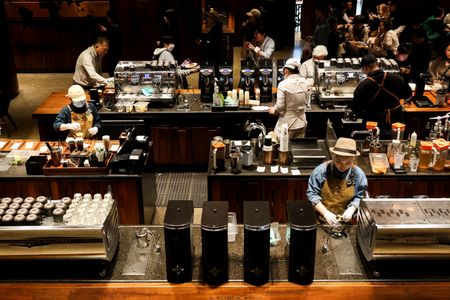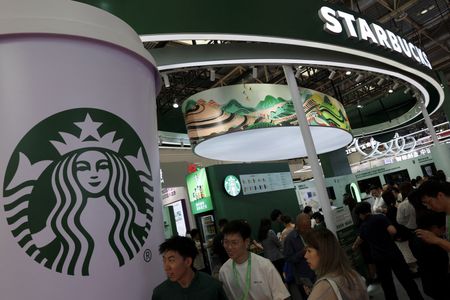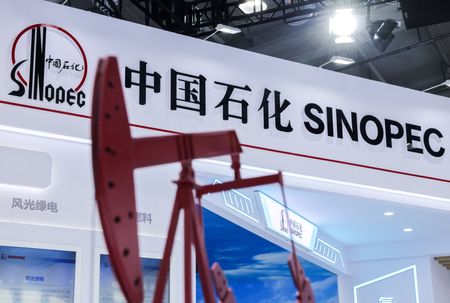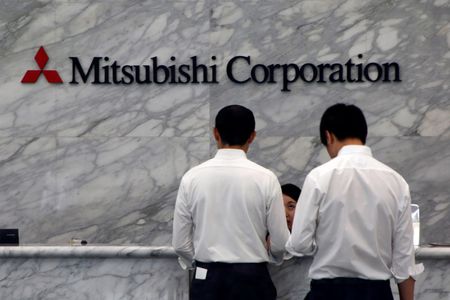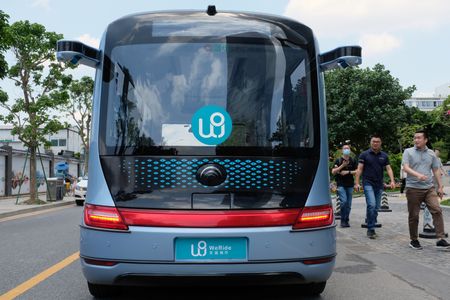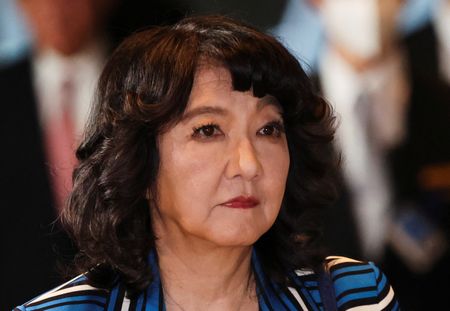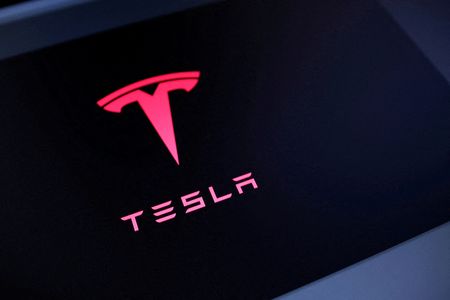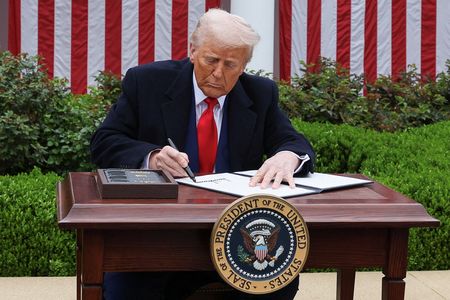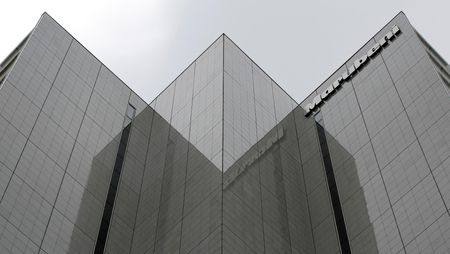By Kane Wu, Waylon Cunningham and Casey Hall
(Reuters) -Starbucks said it would sell control of its operations in China to Boyu Capital in a deal that values the business at $4 billion – one of the largest divestments of a China unit by a global consumer company in recent years.
The Seattle-based coffee chain said the funds from investment firm Boyu will help it jump-start growth in the world’s second-largest economy, where local rivals like Luckin and Cotti now offer lattes for 9.9 yuan ($1.4) – less than a third of Starbucks’ prices.
“We aim to bring the Starbucks experience to more customers, in more cities across China. We see a path to grow from today’s 8,000 Starbucks coffeehouses to more than 20,000 over time,” Starbucks CEO Brian Niccol said in a statement.
SLIDING MARKET SHARE
Under the deal, Boyu – whose founders include the grandson of former Chinese President Jiang Zemin – will hold up to 60% of a new joint venture. Starbucks will hold 40% and will continue to license the brand and intellectual property to the venture.
The U.S. firm said the value of the retail business in mainland China – including proceeds from the sale, the value of its retained stake and likely licensing income over at least the next 10 years – will total more than $13 billion. Its shares climbed 3% in after-hours trading.
Starbucks has been credited with creating the market for coffee in China after entering in 1999. But its market share there has tumbled to 14% last year from 34% in 2019, according to data from Euromonitor International.
Starbucks is expected to focus on its traditional strength of being the coffee chain where people want to meet and spend time, with analysts saying it would be a mistake for Starbucks to enter into an aggressive price war with Luckin.
Luckin, which focuses on take-away and delivery, now has more than 20,000 franchise stores in China and this year gained a foothold in Starbuck’s home turf when it opened two stores in New York.
That said, Starbucks has cut prices for some non-coffee beverages and accelerated the introduction of new localised products to compete better. Comparable-store sales in China increased 2% in the quarter that ended on June 29, versus zero growth in the previous quarter.
BOOST FROM BOYU
Boyu will help open more Starbucks stores in lower-tier cities and make existing stores more cost efficient, according to a person with knowledge of the investment firm’s plans who declined to be identified.
Other global firms have taken a similar approach with their China businesses. McDonald’s, for example, in 2017, sold 80% of its China and Hong Kong operations to investors including Citic for $2.1 billion, a tie-up that has largely been seen as successful.
“Boyu is obviously not like Citic, which is a state-owned enterprise with a very strong supply chain advantage in China in terms of real estate, in terms of land,” said Jason Yu, general manager at CTR Market Research.
“Boyu is more of a private equity firm, they are probably going to provide more strategic support to Starbucks and also help them with relationships and digital partnerships,” he said.
Hong Kong-based Boyu, founded in 2010, made its name investing in some of China’s largest tech firms, but has more recently increased its investments in consumer products notably backing bubble tea giant Mixue Group and taking a 45% stake in luxury department store operator SKP.
(Reporting by Kane Wu in Hong Kong, Waylon Cunningham in New York and Casey Hall in Shanghai; Editing by Thomas Derpinghaus and Edwina Gibbs)

